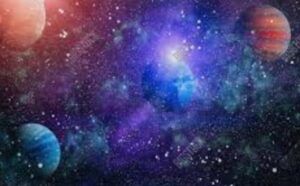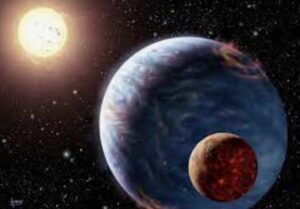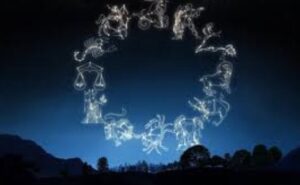Two terms are often merged when talking about the stars: horoscopes and astrology. While they both refer to the planets and the stars behind them, they represent distinct concepts. Horoscopes are a form of entertainment and popular culture, often found in magazines or online platforms, providing generalized predictions based on one’s zodiac sign.

Astrology, on the other hand, is an ancient practice rooted in astronomy, which involves calculating the astronomical angles between the planets as seen from Earth. To truly appreciate the difference between horoscopes and astrology, it is essential to understand their historical origins and how they have been confused over time.
The Origins of Astrology and Early Astronomers

To unravel the intricate relationship between horoscopes and astrology, we must delve into the history of astronomy and its connection to astrology. It may come as a surprise to many that early astronomers, such as Galileo Galilei, were also astrologers. During the ancient and medieval periods, astrology and astronomy were closely intertwined, and in fact, part of the same discipline. One branch involved the direct observation of the planets’ locations and the other meant deriving the interpretation from these locations.
Galileo Galilei

Early astronomers, including Galileo, recognized the significance of astrology and incorporated it into their astronomical observations. Astrology was considered a fundamental part of the study of celestial bodies, as it was believed that the positions and movements of the planets influenced human lives and events on Earth, or at least were correlated with those lives and events.
Indeed, this is a major discussion between the two sides of this debate. One often hears that there is no method of causation, or “cause and effect”. And on the other side, one hears that “correlation is not causation”. Both are valid up to a point. If we first remove the fiction of horoscopes and look only at the locations of the planets and specific birth times, there is a strong correlation.
C.G. Jung

One of the great psychologists, C.G. Jung, was so taken with this correlation that he finally had coin a term for this and to write up his results. He coined the term “Synchronicity” and wrote a book of the same name. Admittedly, this sample was small, but the data had been gathered for another purpose, verified, and then not used.
Further, Jung wasn’t that interested in astrology – either for or against. He was interested in probability and decided the use the data for his experiments. He was after the truth, and felt he couldn’t write up his results because the correlation (97 percent in repeated trials) was so high.
Distinct Differences Horoscopes vs. Astrology

a. Horoscopes as Fiction
Horoscopes, as we commonly encounter them in newspapers, magazines, or online platforms, are essentially fictional narratives. They are based on generalized interpretations of zodiac signs, assigning specific traits and predicting future events based on one’s sun sign. For starters, there are only twelve zodiac signs. One-twelfth of the population is highly unlikely to have the same experience at the same time.
Horoscopes often employ vague language and broad statements that can be applied to a large audience, leading to a sense of personal connection despite their lack of scientific validity.
b. Astrology as Astronomical Calculation
Astrology, on the other hand, involves the precise calculation of planetary positions and alignments at the time of an individual’s birth. This calculation is based on the geocentric model, which places Earth at the center of the solar system.
This is because we people on the earth. There is a branch of heliocentric astrology, and it is more of a spiritually-based interpretation. Astrologers map the positions of the planets in relation to specific constellations and interpret their potential influence on an individual’s personality traits and life events.
Astrology’s Impact and Contemporary Perspectives

Despite the criticism and misunderstand of astrology from well-meaning but ignorant scientists, it continues to captivate the interest of many individuals worldwide. This is because despite the lack of “cause and effect” the high degree of correlation continues to prove accurate. People find meaning in their lives, along with guidance and reassurance.
Lesser-Known Facts Early Astronomers as Astrologers
One fascinating aspect often overlooked is the role of early astronomers as astrologers. Prominent figures like Galileo Galilei, despite their contributions to astronomy, also practiced astrology.
Galileo’s interest in astrology stemmed from the prevalent beliefs of his time and his personal experiences. His correspondence with fellow astronomer Johannes Kepler reveals his exploration of astrological concepts, such as the influence of planetary alignments on human behavior.
The Psychological Framework
Astrology provides a framework for self-reflection, allowing individuals to explore their personalities, relationships, and life paths.
Astrology can serve as a form of introspection and self-discovery. The process of analyzing one’s birth chart and contemplating its interpretations can lead to a deeper understanding of oneself.
Astrology and Cultural Significance

Astrology has had a profound cultural impact throughout history, shaping art, literature, and even political decisions. Many ancient civilizations, such as the Babylonians, Egyptians, and Greeks, embraced astrology as an integral part of their religious and societal beliefs.
The zodiac signs and the symbolism associated with them have permeated various aspects of human culture, from architecture and literature to contemporary popular culture.
Conclusion
The distinction between horoscopes and astrology becomes apparent. Horoscopes are purely entertaining fictional narratives, provide broad predictions based on zodiac signs.
Astrology involves precise astronomical calculations to interpret the potential influence of celestial bodies on an individual’s life. An accurate birth time and location can offer clear answers for the owner of that chart.
If an accurate birth time is not known, there is a branch of astrology known as “rectification” which is “revers engineering” the birth time from predictions for that life. When those answers are known, a single birth time is discovered.
What this really means, which is beyond most people’s understanding, is that this world is an illusion and a physical laboratory for spiritual development. As an apprentice soul, we are admonished to “be careful” yet, a single life on Earth brings these lessons into focus. The physical life is “unparalleled in the growth of the soul”. Astrology is a very clear way to see the path ahead.